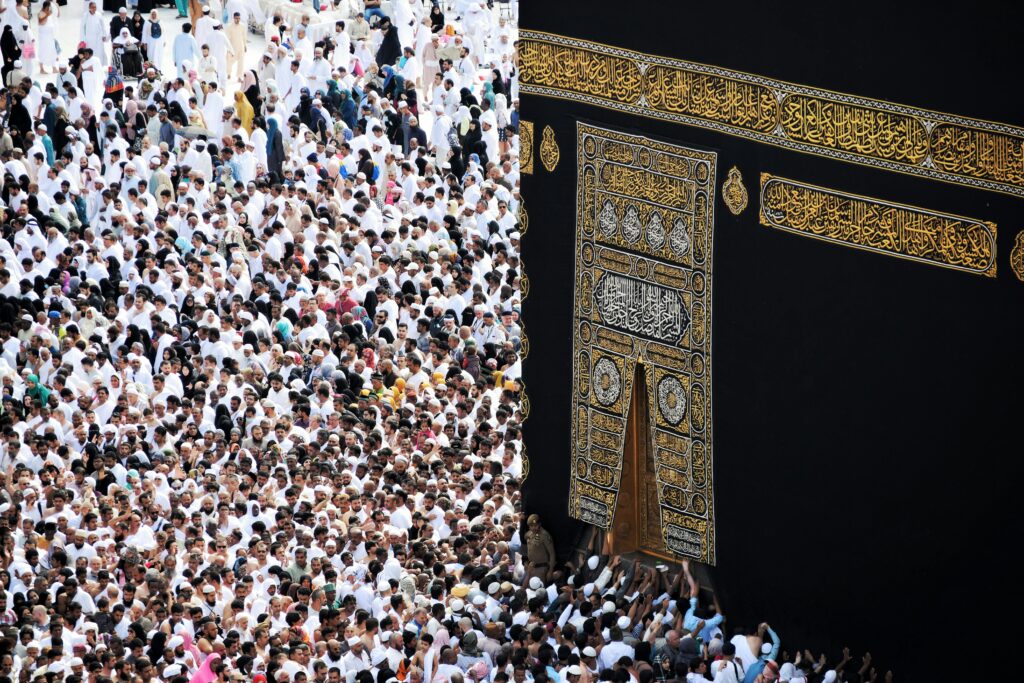Introduction
Saudi Arabia, a land of stark deserts and bustling cities, is a country that blends ancient traditions with modern innovation. This Middle Eastern gem, long shrouded in mystery, has opened its doors to tourists, inviting them to explore its diverse landscapes, rich history, and vibrant culture. But before you pack your bags and head off, it’s important to understand the cultural norms and expectations of this fascinating destination.
Getting Started: Planning Your Trip
Visa Requirements for Tourists
To kick off your adventure in Saudi Arabia, you’ll need a tourist visa. The country offers an e-Visa system, making it easier than ever for travelers from over 49 countries to apply online. Ensure that your passport is valid for at least six months beyond your planned stay. Remember, some areas like Mecca and Medina are off-limits to non-Muslim visitors, so plan accordingly.
Best Time to Visit
Timing is everything. Saudi Arabia’s climate can be harsh, with scorching summers and cooler winters. The best time to visit is between November and February when temperatures are more moderate, ranging from 20°C to 30°C (68°F to 86°F). This period also allows you to enjoy outdoor activities without the blistering heat.
Travel Insurance and Health Considerations
Travel insurance is a must. Ensure your policy covers medical expenses, trip cancellations, and potential travel disruptions. Saudi Arabia also requires proof of certain vaccinations, such as those for meningitis if you’re traveling during the Hajj season. It’s wise to check the latest health guidelines before you go.
Getting Around Saudi Arabia
Domestic Flights
Given the country’s vast size, domestic flights are a convenient option for traveling between cities like Riyadh, Jeddah, and Dammam. Airlines such as Saudia and Flynas offer regular flights at competitive prices, ensuring you reach your destination quickly and comfortably.
Public Transportation: Buses and Trains
For a more budget-friendly option, consider the SAPTCO bus service, which connects major cities. The Haramain High-Speed Railway is another excellent choice, especially if you’re traveling between Jeddah, Mecca, and Medina, offering a fast and comfortable journey.
Car Rentals and Driving Tips
Renting a car provides the freedom to explore at your own pace. International driving licenses are recognized in Saudi Arabia, and the roads are generally well-maintained. However, be prepared for the unique driving culture and always adhere to local traffic laws.
Cultural Etiquette and Social Norms
Dress Code for Men and Women
Saudi Arabia has a conservative dress code. Women should wear an abaya, a loose-fitting black robe, and a headscarf. Men are advised to wear long trousers and avoid sleeveless tops. Dressing modestly shows respect for local customs and helps you blend in.
Greeting Customs and Gestures
Greetings are formal in Saudi Arabia. Men often shake hands, and it’s customary to greet with “As-salamu alaykum,” meaning “Peace be upon you.” Avoid physical contact with the opposite gender, as it may be considered inappropriate.
Understanding Local Laws and Religious Practices
Saudi Arabia adheres to Sharia law, and it’s crucial to respect this legal framework. Alcohol, for instance, is strictly prohibited, and public displays of affection are frowned upon. Being aware of these rules will ensure a smooth and respectful visit.
Top Destinations in Saudi Arabia
Riyadh: The Capital City
Historical Landmarks
Riyadh, the capital of Saudi Arabia, is a city where history meets modernity. Begin your exploration at the National Museum, where you’ll find artifacts that chronicle the country’s rich history. Don’t miss the Masmak Fortress, a symbol of Saudi unification.
Modern Attractions and Shopping
Riyadh is also home to modern marvels like the Kingdom Centre Tower. Ascend to the Sky Bridge for panoramic views of the city. For a shopping spree, head to Riyadh Park Mall, offering everything from high-end fashion to traditional crafts.
Jeddah: The Gateway to Mecca
The Red Sea Coastline
Jeddah, a bustling port city, boasts a stunning coastline along the Red Sea. Relax on the pristine beaches, or dive into the crystal-clear waters to explore vibrant coral reefs and marine life.
Historical Sites in Al-Balad
Al-Balad, Jeddah’s historic district, is a UNESCO World Heritage site. Wander through narrow alleyways lined with traditional coral-stone buildings and discover hidden gems like the Nasif House, which offers insight into the city’s architectural heritage.
Mecca and Medina: Spiritual Centers
Importance to the Muslim World
Mecca and Medina are the holiest cities in Islam. Every year, millions of Muslims flock to these cities for Hajj and Umrah pilgrimages, following in the footsteps of the Prophet Muhammad.
Guidelines for Non-Muslim Travelers
Non-Muslims are not permitted to enter Mecca and parts of Medina. However, understanding the significance of these cities is essential, as they play a central role in Saudi culture and religion.
Al-Ula: Ancient Wonders
Madain Saleh
Al-Ula is a treasure trove of archaeological wonders. Visit Madain Saleh, also known as Hegra, an ancient Nabatean city with intricately carved tombs and sandstone formations that rival Petra.
Rock Formations and Natural Beauty
Explore the dramatic landscapes of Al-Ula, including the striking Elephant Rock. The natural beauty of this region is perfect for hiking and photography enthusiasts.
The Eastern Province: Dhahran and Dammam
Beaches and Recreational Activities
The Eastern Province is known for its beautiful beaches along the Arabian Gulf. Spend a day at Half Moon Bay, where you can enjoy water sports or simply relax under the sun.
Cultural Attractions
Visit the King Abdulaziz Center for World Culture in Dhahran, a stunning architectural masterpiece that hosts exhibitions, workshops, and cultural events celebrating Saudi Arabia’s heritage.
Experiencing Saudi Cuisine
Traditional Dishes to Try
Saudi cuisine is a delightful blend of flavors and spices. Don’t miss trying Kabsa, a fragrant rice dish with meat, vegetables, and aromatic spices. Mandi, a similar dish cooked with saffron and nuts, is also a must-try.
Popular Food Markets and Restaurants
For an authentic experience, visit the local food markets, or souks, where you can savor traditional snacks like falafel and shawarma. Dining in restaurants like Najd Village in Riyadh offers a taste of regional specialties in a traditional setting.
The Influence of Bedouin Culture on Saudi Cuisine
Saudi cuisine is deeply influenced by Bedouin traditions, emphasizing hospitality and communal meals. Dishes like Qursan, made with unleavened bread and meat stew, reflect the resourcefulness and simplicity of Bedouin life.
Outdoor Adventures and Activities
Desert Safaris and Camel Rides
Experience the magic of the desert with a thrilling safari. Ride camels across the dunes, witness stunning sunsets, and enjoy a traditional Bedouin dinner under the stars.
Hiking Trails and Nature Reserves
Saudi Arabia offers diverse landscapes for outdoor enthusiasts. Hike through the Asir Mountains, where you’ll find lush greenery and cooler temperatures. The Farasan Islands also provide excellent opportunities for bird watching and marine exploration.
Water Sports and Diving in the Red Sea
The Red Sea is a haven for water sports. Go snorkeling or diving to discover vibrant coral reefs and exotic marine life. Jeddah’s coast is particularly famous for its underwater beauty.
Shopping in Saudi Arabia
Traditional Souks and Markets
Immerse yourself in the bustling atmosphere of Saudi souks, where you can buy everything from spices and perfumes to textiles and jewelry. The Souk Al-Zal in Riyadh is a great place to find authentic Saudi handicrafts.
Luxury Shopping Malls
Saudi Arabia is home to numerous luxury shopping malls, such as the Red Sea Mall in Jeddah and the Mall of Arabia. These malls offer international brands and entertainment options, making them perfect for a leisurely day out.
Buying Souvenirs: What to Look For
When shopping for souvenirs, look for items that reflect Saudi culture, such as oud (a traditional fragrance), thobes (traditional clothing), and handcrafted pottery. These make for meaningful mementos of your trip.
Accommodation Options
Hotels and Resorts
Saudi Arabia boasts a wide range of accommodations, from luxurious five-star hotels to beach resorts. The Ritz-Carlton in Riyadh and the Jeddah Hilton are renowned for their world-class service and amenities.
Budget-Friendly Accommodations
Travelers on a budget can find plenty of affordable options, including hostels and budget hotels. Consider staying at local guesthouses, known as “mubashirs,” for a more authentic experience.
Unique Stays: Desert Camps and Heritage Hotels
For a truly unique experience, spend a night in a desert camp. These camps offer comfortable tents, traditional meals, and stargazing opportunities. Alternatively, stay in a heritage hotel, such as Al-Mansourah Palace, to immerse yourself in Saudi history.
Safety and Health Tips
Staying Safe as a Tourist
Saudi Arabia is generally safe for tourists, but it’s wise to exercise common-sense precautions. Avoid political discussions, respect local customs, and always carry identification.
Understanding Emergency Contacts and Services
Familiarize yourself with local emergency numbers. The general emergency number is 911, and most cities have hospitals and clinics offering quality medical care.
Health Precautions and Vaccinations
Check with your doctor for any necessary vaccinations before traveling. It’s also advisable to carry a basic first-aid kit and any personal medications.
Respecting Religious Practices
Observing Prayer Times
Prayer is an integral part of daily life in Saudi Arabia. Be mindful of prayer times, which occur five times a day, as businesses may close temporarily during these periods.
Visiting Mosques and Religious Sites
When visiting mosques, dress modestly and remove your shoes before entering. Non-Muslims are generally not permitted to enter the holy sites in Mecca and Medina, but many mosques in other areas are open to visitors.
Understanding Ramadan and Its Impact on Daily Life
During Ramadan, Muslims fast from dawn until sunset. As a visitor, it’s respectful to avoid eating or drinking in public during daylight hours. Join in the evening iftar, the meal that breaks the fast, to experience the communal spirit of Ramadan.
Technology and Connectivity
Internet Access and SIM Cards
Stay connected by purchasing a local SIM card upon arrival. Major providers like STC, Mobily, and Zain offer reliable mobile and internet services.
Using Mobile Apps for Travel
Utilize travel apps for navigation, language translation, and local recommendations. Apps like Careem and Uber provide convenient transportation options in major cities.
Staying Connected with Locals
Engage with locals through social media platforms and community events. Saudis are known for their hospitality and are often eager to share their culture with visitors.
Festivals and Events
Cultural Festivals to Attend
Saudi Arabia hosts numerous cultural festivals throughout the year. The Janadriyah National Festival celebrates the kingdom’s heritage with traditional music, dance, and crafts.
Sporting Events and Entertainment
Catch a thrilling camel race or enjoy modern entertainment at events like the Riyadh Season, which features concerts, exhibitions, and performances.
Religious Celebrations and Their Significance
Witnessing a religious celebration in Saudi Arabia offers a unique insight into the country’s spiritual life. Eid al-Fitr and Eid al-Adha are important festivals marked by prayers, feasts, and family gatherings.
Challenges and Solutions
Language Barriers and Communication
While Arabic is the official language, English is widely spoken in urban areas. Learning a few basic Arabic phrases can enhance your travel experience and help you connect with locals.
Adapting to the Climate
Saudi Arabia’s climate can be challenging, especially in the summer. Stay hydrated, wear sunscreen, and dress appropriately for the weather. The evenings can be cooler, so pack a light jacket for desert excursions.
Handling Cultural Misunderstandings
Cultural misunderstandings can happen, but patience and respect go a long way. If unsure about local customs, don’t hesitate to ask for guidance. Saudis appreciate visitors who show an interest in their culture.
Conclusion
Traveling in Saudi Arabia offers a journey through time, from ancient wonders to modern marvels. With its rich cultural heritage, stunning landscapes, and warm hospitality, Saudi Arabia is a destination that promises unforgettable experiences. Embrace the adventure, respect the culture, and you’ll leave with cherished memories and newfound friends.

